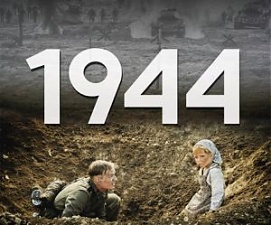Baltic States – CIS, Estonia, Good for Business, History, Technology
International Internet Magazine. Baltic States news & analytics
Friday, 26.04.2024, 22:21
Estonian film '1944' successfully screened in Moscow
 Print version
Print version |
|---|
"We can absolutely call it a success: it was a full house and the audience reacted with empathy and understanding," Regina Palandi-Paju, press diplomat at the Estonian embassy in Moscow, told BNS on Tuesday.
Before the screening of the film on the premises of the Memorial foundation introductory remarks were read by the head of the foundation, Arseni Roginski, and Estonian ambassador Arti Hilpus.
"The screening of the film was followed by an intense and cordial discussion in which also the film's director, Elmo Nuganen, took part. The moderator of the discussion was critic and journalist Mikhail Ratgaus," Palandi-Paju said.
She said opinions were expressed during the discussion that it's possible for the people who have seen the film to better understand the pain of Estonians and the impact that the events of that time had on the Estonian people. "In the discussion that followed the showing of the film, director Elmo Nuganen achieved very good contact with the audience and people just wouldn't leave despite it being late in the evening," the press diplomat said.
She said '1944' was last shown in Moscow as part of the program of the Estonian Film Days in March. The film has been screened also in St. Petersburg, as part of the Estonian Film Week last year, where it also received a very good reception. As far as is known to the embassy, the film has not been shown elsewhere in Russia.
'1944' also featured among the nominees for the Nika film prize in Russia in the best CIS and Baltic film category but didn't get the prize.
'1944' tells the story of Estonia during the year that saw the WWII battlefront move from the Blue Hills in northeastern Estonia to Sorve Peninsula on Saaremaa Island. The story is told through the eyes of Estonian soldiers who are in a moral quandary, forced to pick sides between invading armies when their real dream is re-establishing Estonian independence. This often meant, quite literally, brother fighting brother.








 «The Baltic Course» Is Sold and Stays in Business!
«The Baltic Course» Is Sold and Stays in Business!

